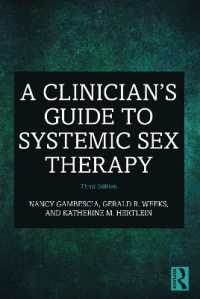- ホーム
- > 洋書
- > ドイツ書
- > Mathematics, Sciences & Technology
- > Biology
Full Description
This Brief explores the use of proteomics as a tool for biomarker discovery in human reproduction and summarizes current findings and trends of proteomic studies in both male and female infertility.





